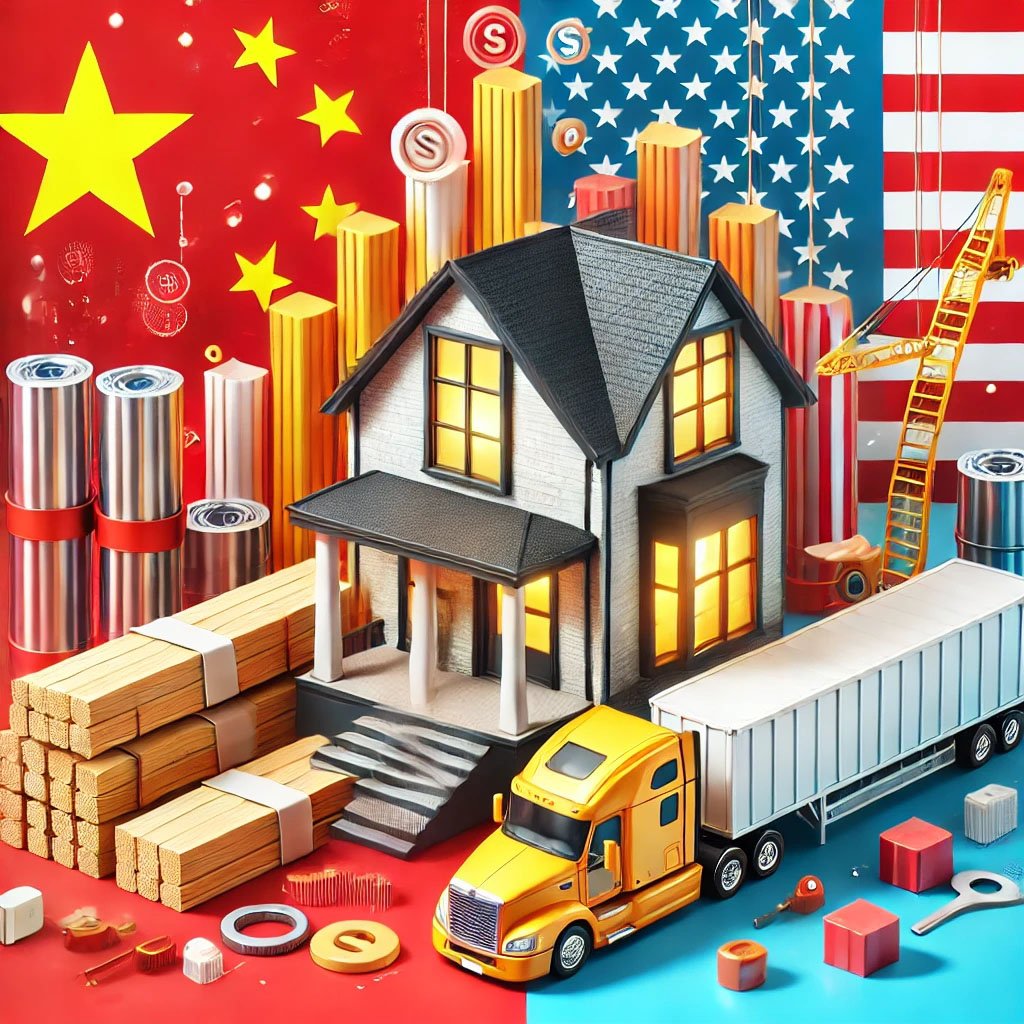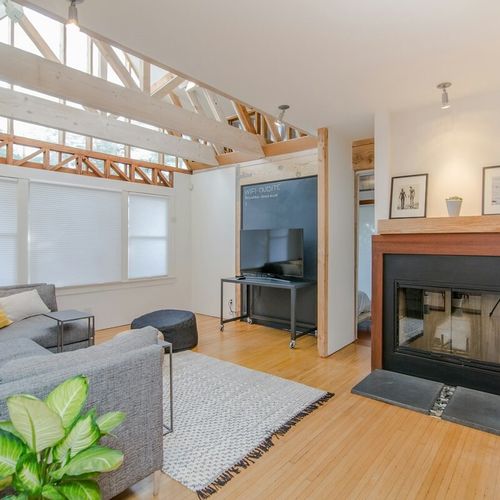Tariffs 101
A tariff is essentially a tax placed on imported goods. When these goods become more expensive to bring into the country, companies often pass the additional cost on to consumers. For the real estate sector, tariffs on steel, aluminum, lumber, and other key building materials can translate into higher construction costs and, eventually, higher home prices.
Why It Matters
- Renovations and Remodeling: If you’re planning a kitchen upgrade or a new roof, expect home renovation expenses to climb if materials are sourced from tariff-affected countries.
- New Construction: Builders might delay or reduce the number of projects if the price of materials spikes, leading to a reduced housing inventory and upward pressure on home prices.
Construction Costs: Breaking It Down
Steel & Aluminum
Steel and aluminum are key components in modern homes, especially for structural support and roofing. Tariffs on these metals can lead to a price increase for the overall home build, from the framing to the finishings.
Lumber & Other Materials
While lumber is often domestic, supply chain disruptions caused by international tariffs can still have a ripple effect. If builders find it more expensive or challenging to source materials, project timelines may stretch, and overall construction costs rise.
Energy-Efficient Features
Green home features—like solar panels—can be affected, too. If tariffs extend to the components needed for these installations, the cost of upgrading your home for efficiency may go up.
Impact on Hampton Roads Property Values
Fewer New Listings
As construction becomes more expensive, fewer new homes may come onto the market. Limited housing inventory often drives home prices higher. That can be a plus for current homeowners looking to sell but a challenge for buyers seeking affordability.
Unique Coastal Considerations
Hampton Roads, with its proximity to the coast, often requires specialized building codes for hurricane or flood resilience. If tariffs raise the price of the reinforced materials needed to meet these standards, it could disproportionately affect local property values and insurance costs.
The Renovation Dilemma
For current homeowners, deciding whether to renovate or wait becomes more complex when tariffs drive up home renovation expenses. While a remodel could boost your home’s value, increased costs might eat into your return on investment.
What Buyers and Sellers Can Do Now
- Stay Informed on Interest Rates
Tariffs can influence the broader economy, including interest rate policy. Keep an eye on mortgage rates—if they rise alongside construction costs, buyers may need to adjust budgets accordingly. - Look for Local Suppliers
Some builders and remodelers might pivot to domestic or local suppliers - to minimize tariff-related price hikes. Ask contractors about where they source materials and whether they anticipate costs changing.
- Consider Timing
If you’re planning to sell, the current environment of potentially lower inventory could work in your favor. On the flip side, if you’re buying, locking in a mortgage rate before any potential increases could save you money in the long run. - Work with a Knowledgeable Realtor
Tariffs in real estate can be complex, and every neighborhood might feel the effects differently. Partnering with a local expert can help you interpret the market’s ups and downs and make confident decisions.
Final Thoughts
New tariffs might sound like a distant economic policy issue, but they can have real, tangible impacts on Hampton Roads property values, construction costs, and home renovation expenses. Whether you’re buying, selling, or just keeping an eye on the market, understanding how tariffs can affect the real estate landscape is crucial for making informed decisions.
If you have questions about how these broader economic changes could shape your homeownership journey here in Hampton Roads, reach out today. I’m here to help you navigate the evolving market with clarity and confidence—so you can focus on finding (or creating) a home you love.






